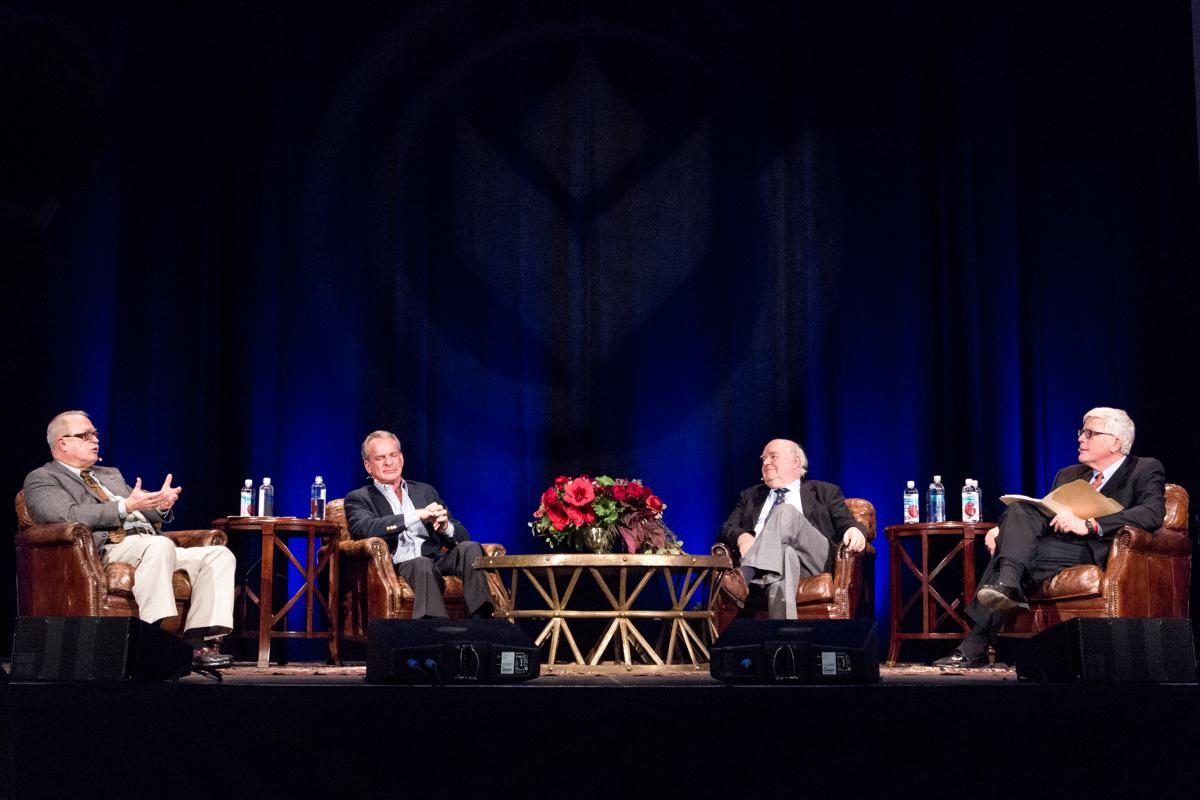Students feel prepared to converse with others on the topic of religion versus science through the information they gain in Biola’s science courses.
A CULTURAL STEREOTYPE
A Pew Research Center study showed 59 percent of adults believe science and religion are in conflict, yet 68 percent of adults say their personal religion is not in conflict with scientific beliefs.
With most of the public seeing science and religion at odds, John Bloom, academic director with a Master’s in religion and science, recognizes a cultural stereotype where science has shown Christianity as incorrect, considering science has taken a naturalistic position.
“The real problem between science and Christianity in particular is that science has adopted a religious position. It’s naturalism so [they are] going to look at the world purely materialistically. The only explanations [they] will accept are naturalist ones,” Bloom said. “But if science is the search for truth of what’s really going on and historically that’s how science got started, ‘what’s going on in the physical world? Can we see patterns out there then that’s very compatible with the Christianity if not, based on christian principles.”
PROMOTING DISCUSSION
To prepare his students, Matthew Ingle, assistant professor of biological science, has created a safe area for conversation to ask difficult questions and promote discussion of questions students may face outside of Biola.
“Where science is limited, Scripture is not, God is not. Our ability to understand God through reading scripture is not limited in the same way that science is and our ability to understand God’s nature and his eternal power,” Ingle said. “I think it gives our students a proper understanding of science and its limitations and also a proper understanding of how it fits in as being a secondary means of understanding about reality secondary to scripture, and then giving them a place where they can practice the integration.”
COMBINING SCIENCE AND CHRISTIANITY
Kyle Mueller, third year graduate student of Talbot School of Theology, remembers his time as an undergraduate student and how his professors prepared him to combine Christianity and science together.
“Honestly, I think my best preparation was when I was an undergrad. I actually was a physics engineering major for a little bit and just the way the professors connected the science realm to the way that God works in our world, so science being a way that God reveals how he created the world, how things are made,” Mueller said.
Jonathan Naritoku, senior environmental science major, feels all truths are God’s truths and though science cannot possibly explain everything, it can prove God’s existence.
“If you don’t have classes in science, it might be a bit harder to explain that especially in my major,” Naritoku said. “That’s part of science so all truths are God’s truths and science does not fully understand the truth but it’s as close as we can get to it. I would say that it’s very much connected to each other.”







